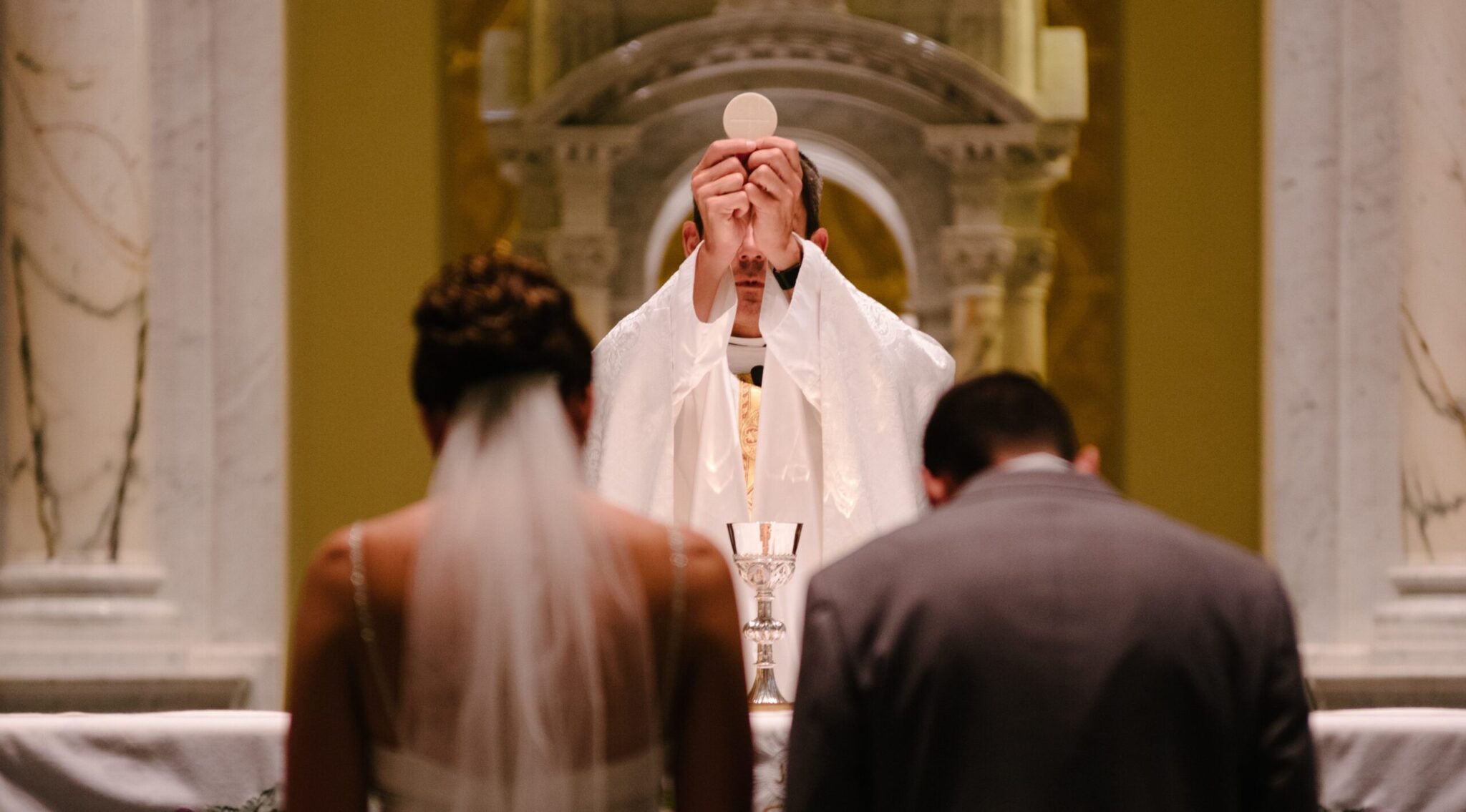Every Christian is commanded to let all wrath, anger, clamor, and malice be put away from his or her life (Ephesians 4:31), so how do we interpret the psalmist’s proclamation that he is “seized by hot indignation?” Was this written for Old-Testament-Saints only? Shall we “unhitch” this verse from the modern church? Isn’t anger so dangerous that we shouldn’t even “dip our toes in that water?”
Righteous Anger?
Psalms 119:53 Hot indignation seizes me because of the wicked, who forsake your law.
My friend, do not neglect to embrace the whole counsel of God! If you are to be conformed to Christ (Romans 8:29), then you will love what He loves and hate what He hates. We don’t unhitch from the Old Testament, because what we know is that as much as David spoke these words, so does our Savior? Do you not see it? Who is it that keeps God’s law continually (Psalm 119:44), delights in and loves God’s commands (Psalm 119:47-48), did not turn from God’s law even when derided (Psalm 119:51), et al? It is Christ Himself who is righteously angry because of the wicked who forsake His law. And we ought to be too!
The problem is that our battle with the flesh has so often led (even our righteous indignation) to sinful wrath or malice. God has given us great freedom in Christ, and many of us have rightly needed to repent of sinful anger. And in that quest, we have swung the pendulum so far in the direction of peace that we may have started to make peace with that which we ought not.
The goal of growing in godliness is to become more like Christ and think His thoughts after Him (2 Corinthians 10:5). So it is fitting that a Christian exert serious effort to put away anger. But sometimes we commit to never getting angry anymore, rather than, ensuring we are appropriately angry. In order to avoid the sinful anger we once walked in, we avoid any and all emotion which could lead there. We don’t always become more mature but simply mismanage our feelings in a different way from before.
Many become stoics out of strict pragmatism. We have traded sinful anger for sinful legalism. When what we ought to do is follow the man, Jesus Christ, who experienced all the temptations we do, yet exercised perfect anger, never sinning as the result. Avoiding anger altogether because you indulged too deeply in that sin before conversion is akin to avoiding church because you were a religious zealot before Christ. Put away the old—but put on the new.
And we find a key for examining our own anger—is your anger inspired by the fact that you are offended or that God is offended? Being honest about this is paramount! We can know God is offended by evil in our day, yet still be sinfully angry. Our anger must be proportionate to the cause, and the practical effect must still be godly living (Ephesians 4:26). Much more can be said about this topic but for the sake of space, we’ll move on!
My Songs
Psalms 119:54 Your statutes have been my songs in the house of my sojourning.
There are many churches that exclusively sing songs from the “Psalter.” Essentially, these folks are singing hymns that are truly inspired (2 Timothy 3:16). We are told in Ephesians to make a melody to the Lord with our hearts. Effectively, we must sing God’s truth to ourselves wherever we go (Acts 16:25).
Ephesians 5:19 addressing one another in psalms and hymns and spiritual songs, singing and making melody to the Lord with your heart,
A repeated theme in Psalm 119 has been that God brings comfort to His people through His Word. The house of my sojourning, although certainly literally true for David and Christ, represents the reality of all the children of God. Like the Israelites in Egypt or Babylon, we are sojourners in a foreign land. Peter calls us sojourners and exiles (1 Peter 2:11). And while we are just visiting, we need God’s statutes to fuel us to persevere.
Keeping God’s statutes in our hearts provides 3 primary graces while in the house of our sojourning. First, we receive comfort in our affliction. We ARE strangers in a strange land with Heavenly citizenship (Philippians 3:20). Simply knowing God is comforting to those in whom His Spirit dwells, and we know Him through His revealed Word. Secondly, we receive instruction for how we shall live in our circumstances. In order to fulfill the command of 1 Peter 2:11, we need God to reveal His commands to us. And by the enabling grace of the Spirit of Christ, we have freedom and power to obey them (1 John 5:2-3).
And finally, keeping God’s statutes in our hearts, even singing of them, provides us the necessary hope of future deliverance. The important thing to remember about sojourning is that it implies there is a home somewhere. And every redeemed saint ought to know that Christ will come back and take him or her home (Philippians 3:21, John 14:3). Cling to this hope, and you will persevere by His grace through even the roughest times this world that is passing away will offer.
Godliness is Contentment
Psalms 119:55 I remember your name in the night, O Yahweh, and keep your law.
What a glorious thought that God would be on our minds at all times! The definition of godliness is effectively “thinking about God.” And we are sure that what we think about will translate into action. And God’s name is utterly important because His name identifies who He is. This is why you will see my “modified” translation in the verse reference above. God’s name, revealed in the OT is not “the LORD,” but it is YHWH (commonly called the Tetragrammaton and anglicized as Yahweh). Click the link to read more about that.
Remember that this is the 7th verse in the Zayin octave. Herein, we see the diametrically opposed forces of the righteous and the insolent. The one who loves God and keeps His commandments is starkly contrasted with those who forsake His law. The psalmist sings of God’s statutes in and to his own heart, takes comfort from thinking of God’s rules, and keeps God’s law despite the derision of evildoers. Thus, it is fitting that his comfort in the night is the simple remembrance of God’s name.
And how does God’s name comfort? God’s name tells us much about Him. YHWH means “He is.” It is a proclamation of God’s simplicity, immutability, impassibility, and solitariness. Our God is not composed of part or any pre-existing stuff, He cannot change (so we can trust His promises), and He is not capricious in His decisions. This is where theology and “real life” collide. There are folks who will tell you “theology is nice, but I need practical application.” Yet the truth is there is nothing practical apart from right theology. That is, every man applies his theology to his life; the question is whether you have good theology. Here’s a video which may aid you in your worship today.
It is also notable that “night” could imply that we remember God’s name even when we are surrounded by darkness of a spiritual nature. We ought to remember God’s name after sunset, sure, but how much more helpful is the recollection of God and His attributes when we are surrounded by the forces of evil while in this house of our sojourning?
It is a Blessing
Psalms 119:56 This blessing has fallen to me, that I have kept your precepts.
To the unbelieving world, Christianity is a set of rules to follow. But to the Spirit-led saint, it is a blessing to be enabled to keep God’s law. We are wholly incapable of keeping God’s righteous commandments prior to salvation. Christ has swooped in and saved our souls, paying the penalty for us. And now, enabled by a new heart and the Spirit of Christ himself, we greatly desire to follow God’s laws! Our desires are becoming more and more aligned with God’s will and ways as we trod the path of life.
Yet there is still a struggle! The Apostle Paul bemoans his own inability to keep God’s law while proclaiming his desire to do so: Romans 7:15 “For I do not understand my own actions. For I do not do what I want, but I do the very thing I hate.” Christians remain in this corruptible flesh until receiving their glorified body—yet must endure that time with a spirit that is opposed to their flesh (Galatians 5:17). The struggle is real! And dear friend, if you are facing that struggle that is actually an indicator that you have been redeemed.
So when we find ourselves to “have kept God’s precepts,” we must come to the realization that this is also a blessing from God. For the branch can have no strength but that which the vine has provided (John 15:4). Psalm 119 has many prayers of supplication (Psalm 119:8,26,31,64), but here is a prayer of praise and thanksgiving, though it appears disguised as a simple proclamation.
Recognizing that any success in keeping God’s precepts is a gift from God ought to evoke similar praise and thanksgiving on our part. We must see our own obedience to God as a blessing, and then we will properly rise and praise Him (Psalm 119:62).
See all posts in this series
[loop type=”post” taxonomy=”tag” value=”Psalm 119″ format=”clean” orderby=date order=ASC author=same]
[field title-link][/loop]







Robert, thank you very much for the kind words, brother. That sincerely means a lot to me that your spirit…